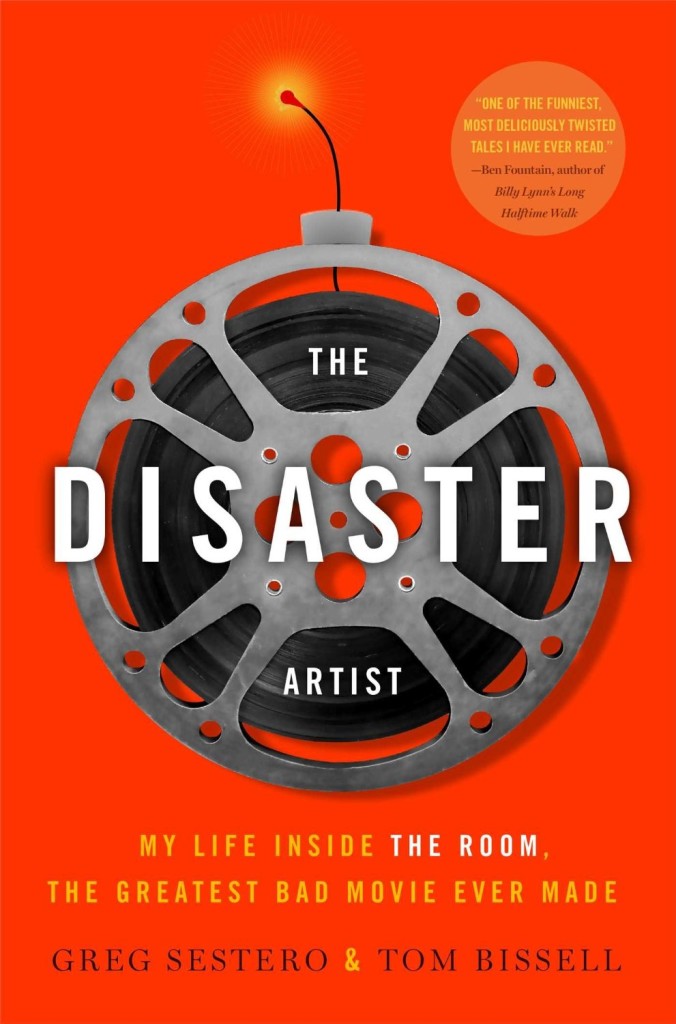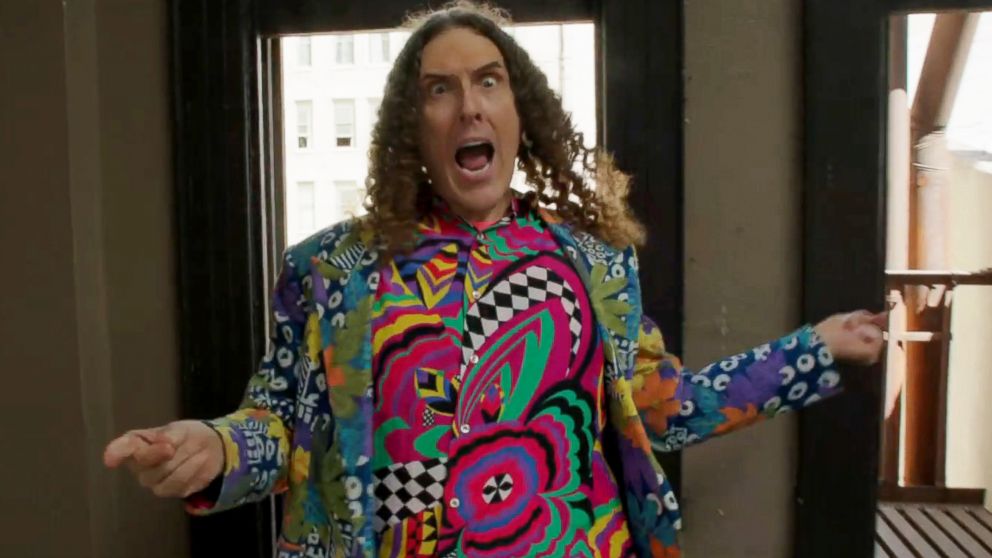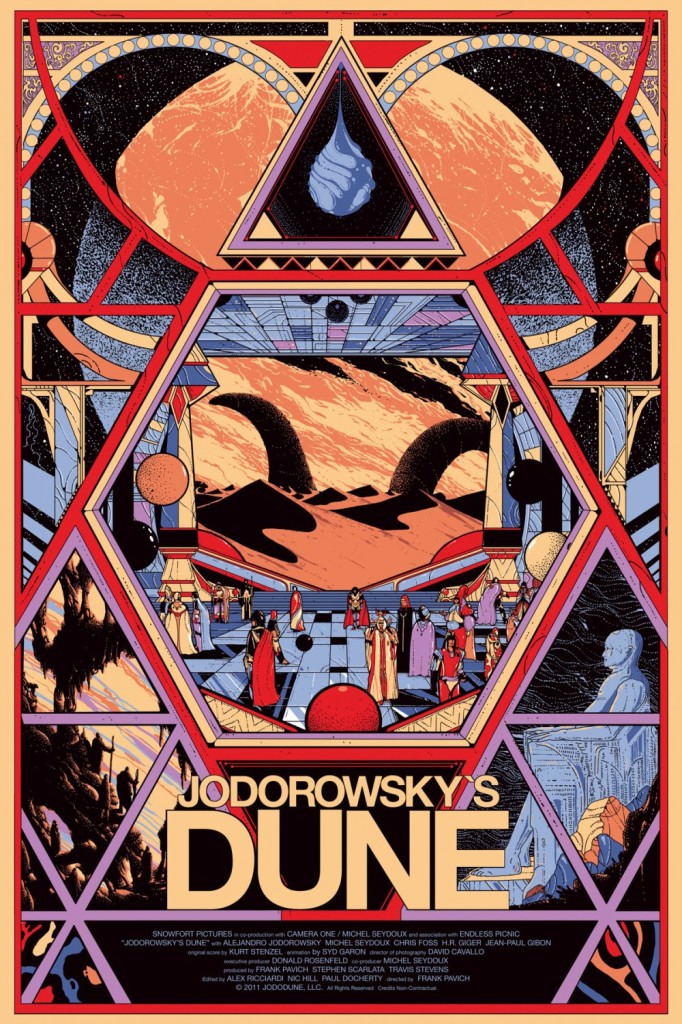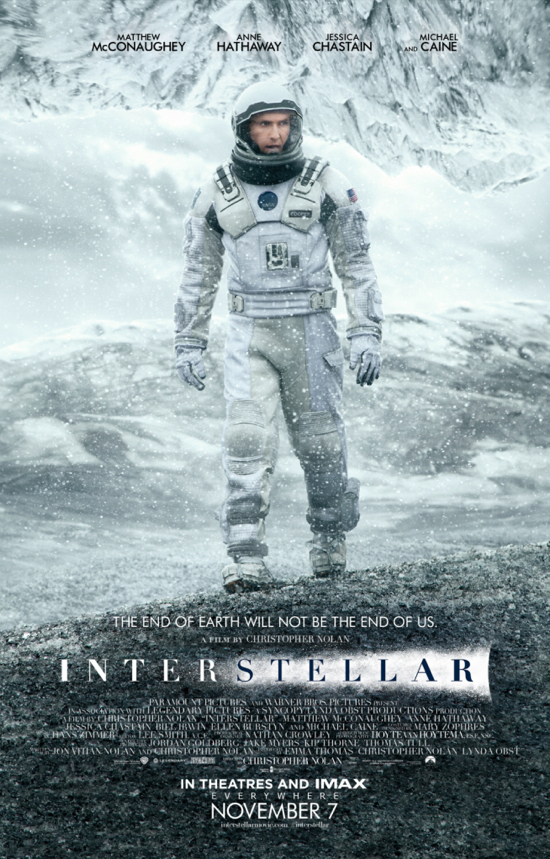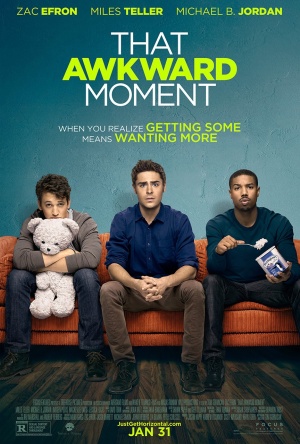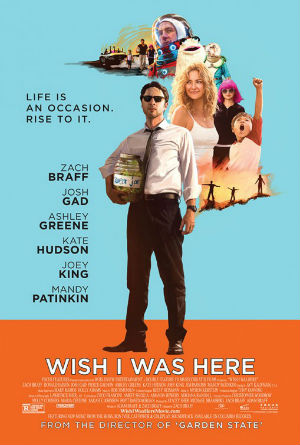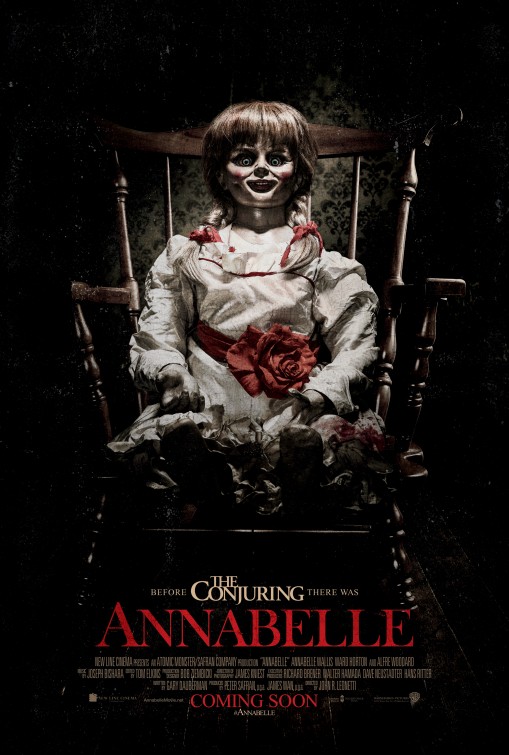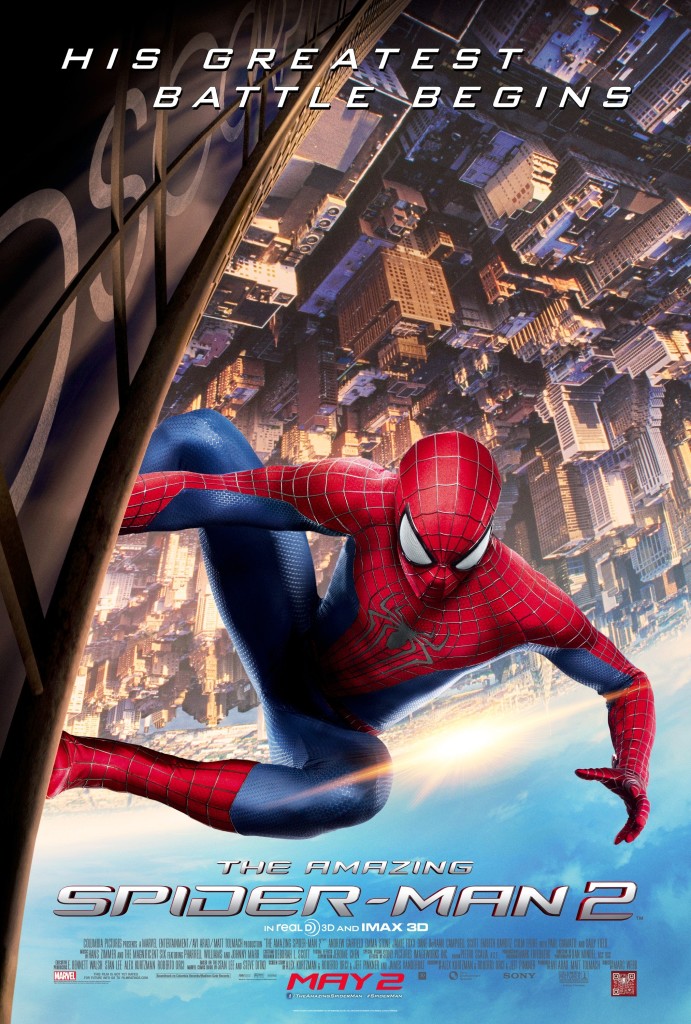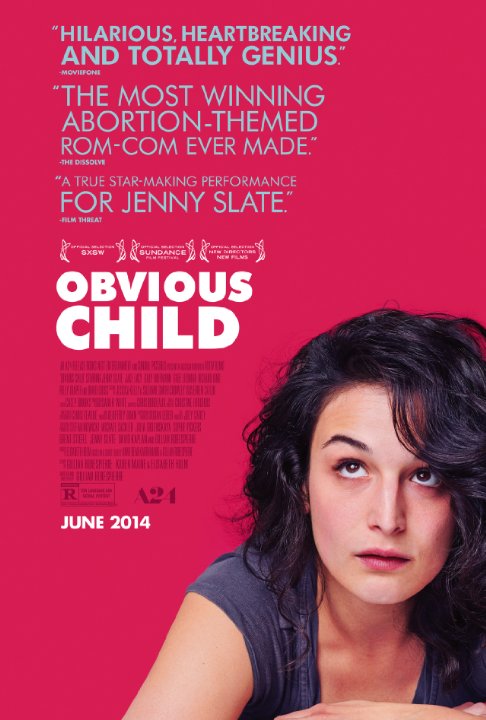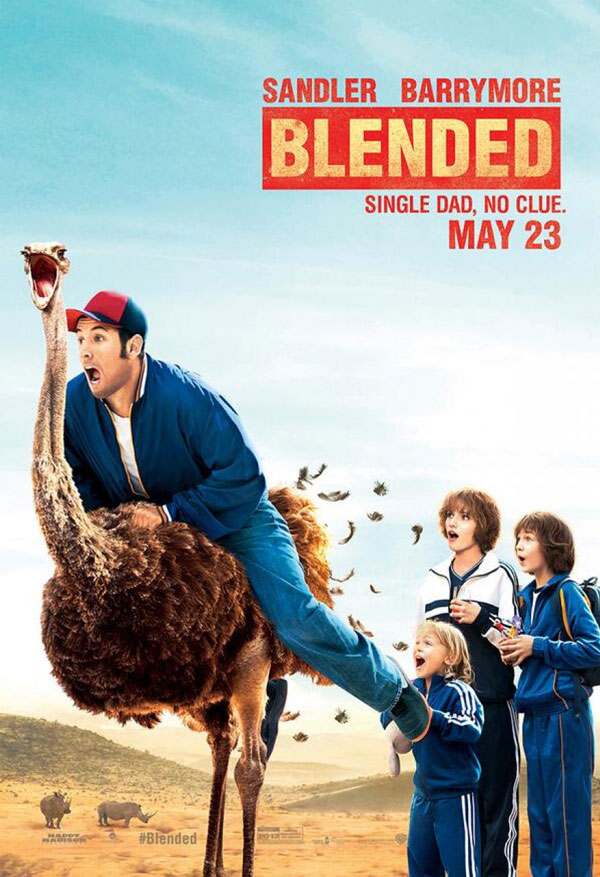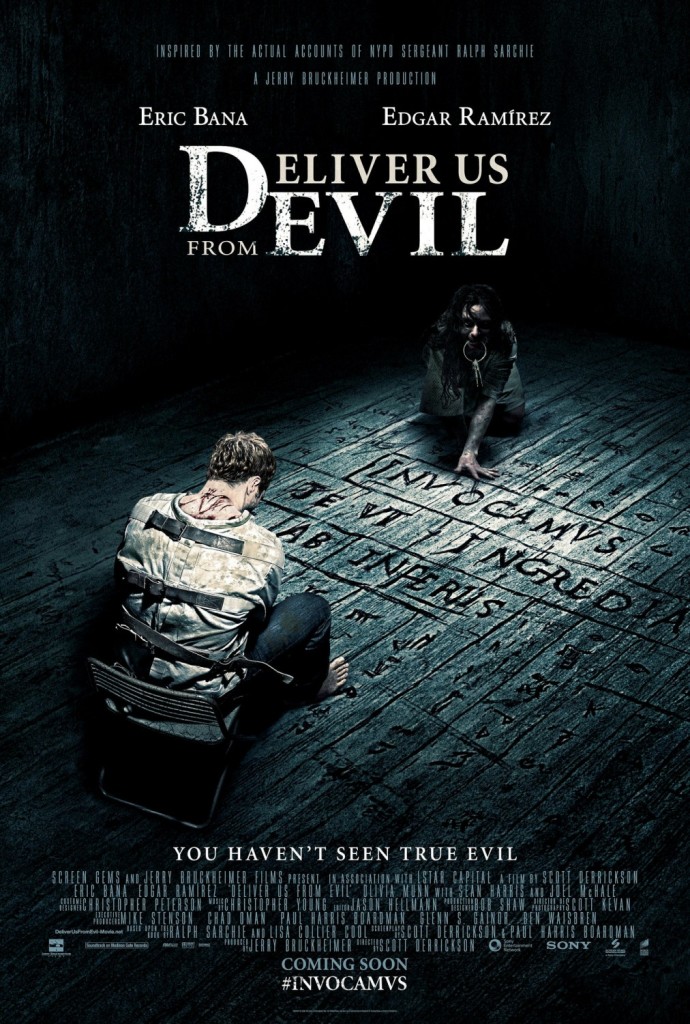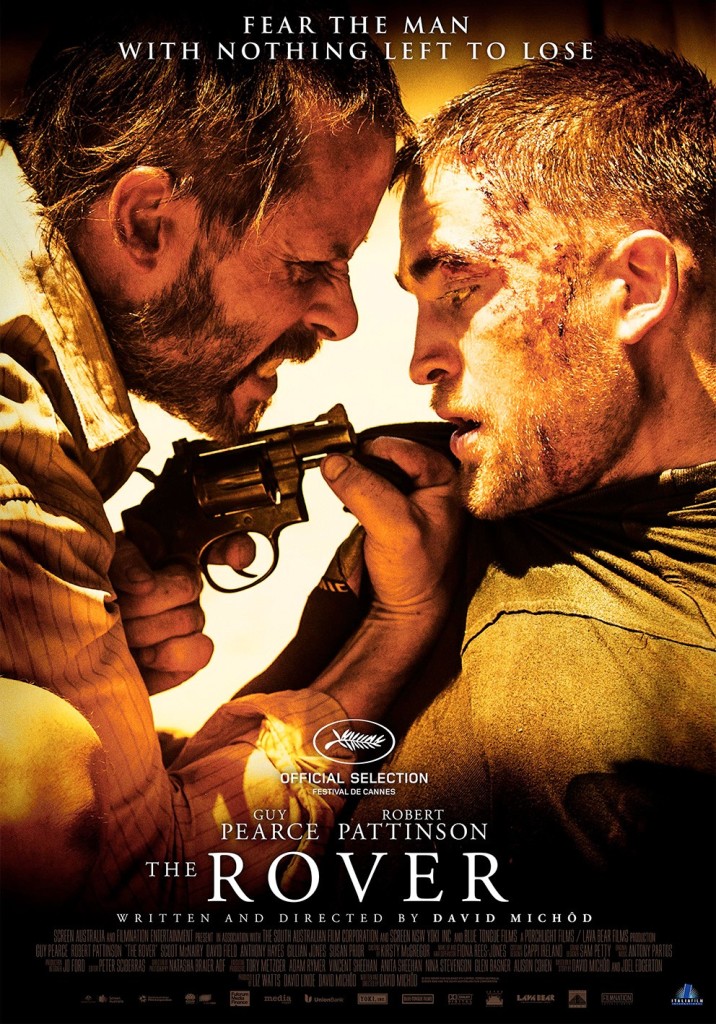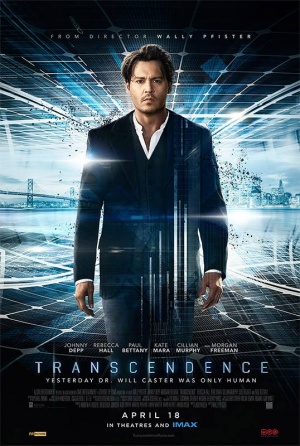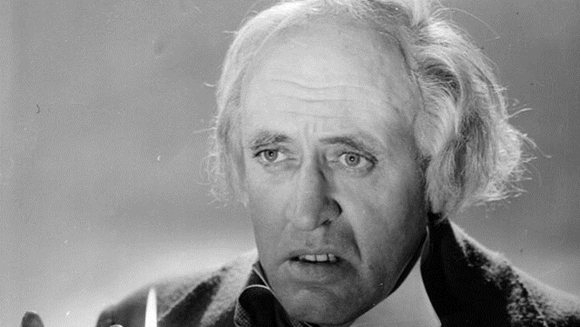So it’s the first post of the year and I’m reviewing… a book?
Yes.
Because it’s not just any book. The Disaster Artist may be the funniest book ever written. There is a catch, however. If you’re going to buy this book, I highly advise you get the audiobook version. Why? Because the book’s author (who also reads it) adds his hilarious impression of the book’s eccentric subject, Tommy Wiseau, whenever he quotes Tommy. And about half the book is quoting Tommy.
To understand why this would be funny, go watch this interview of Tommy Wiseau. As you’ll see, Tommy’s accent very well might be the eighth wonder of the world. There is no origin for it, no logic, no rhythm, no reason. Every time he speaks it’s like watching two cars playing chicken on the highway.
To provide some context for the book, you’ll have to have heard of The Room. The Room is a 2003 film that many consider to be the worst movie ever made. In the tradition of Ed Wood, however, The Room is insanely watchable in a “so bad it’s good” way.
If you don’t die of uncomfortable laughter during the five-minutes-too-long love scene, you’ll fall down laughing from lines like, “Hi Doggie,” and “I did not hit her! It’s not true! It’s bullshit! I did not hit her. I did not!” (throws water bottle – then, completely happy within a nanosecond) “Oh, hi Mark.” Then, of course, there’s the moment where Johnny (the main character, played by Tommy) has sex with his fiancé’s dress before shooting himself.
What’s The Room about? Well, to hear it from Tommy’s perspective, it’s a complex character drama about seven people whose lives intersect on a daily basis as they come in and out of this room (Johnny’s apartment). But things start to unravel when Johnny’s fiancé starts cheating on him with his best friend, Mark.
Mark, it turns out, is played by actor Greg Sestero, who is the co-writer of the book (Tom Bissell is the other writer). And Greg finally puts to rest the mystery of how this movie was made. And when I say he finally puts it to rest, I mean he goes into EVERY SINGLE DETAIL of the movie’s pre-production and production. Which would seem like overkill. But it’s not overkill when you have the most interesting man in the world to talk about.
Some of the highlights of Greg’s memories of Tommy include how the original actor slated to play Mark was an actor named “Dan.” But Tommy always called him “Dawn.” Whenever anyone would say Dan’s name around him, Tommy would say, “Who is that??” since he knew him as Dawn. This forced everyone to gradually call Dan “Dawn” as well.
Then there was Tommy’s decision to replace Dawn with Greg during production. Except he didn’t want to fire Dawn as he feared confrontation. So his plan was to shoot all the scenes with Greg under the pretense that the “producers” (there were no producers) wanted to see tape on Greg. Then when Dawn would come in to do the scene, Tommy would instruct the cameraman to only pretend to record him. As you would expect, this didn’t end well.
Tommy also did such things as buy a two camera set-up so he could record in both film and HD at the same time. Whenever anyone asked him why he would do such a thing, he would say because it was “big American production.” Whenever they went out to eat, Tommy would always order a glass of hot water (he got in an argument with the waiter every time he did so). Tommy would hold impromptu five minute silences for America. He would drive five miles per hour wherever he went. He didn’t know how to use windshield wipers so when it rained, he would push his face against the window to see.
Maybe the funniest moment in the book has no relation to The Room at all. Tommy and Greg first met in an acting class in San Francisco many years before The Room. Tommy, who had a tempestuous relationship with the acting teacher for always vehemently dismissing her critiques, had picked a famous scene from his favorite play, A Streetcar Named Desire, to perform with an unfortunate female student.
As you all know from the scene, in it, Stanley is screaming at Stella up on the stairway. With “Intense Emotion” being Tommy’s favorite thing to play as an actor, he went… shall we say, “overboard.” Tommy rarely remembered a single line when he was acting, much less an entire scene of them. This forced him to always make up his own lines. In this case, he didn’t remember any lines. So he just continued to scream “Stella!!” over and over again, somewhere in the neighborhood of 50 times. All of this while never once looking at the actress actually playing Stella, who stood dumbfounded next to him. Tommy instead delivered the scene directly to the audience. According to Greg, everyone in the room realized that they had just witnessed the single most horrible performance in the history of the world.
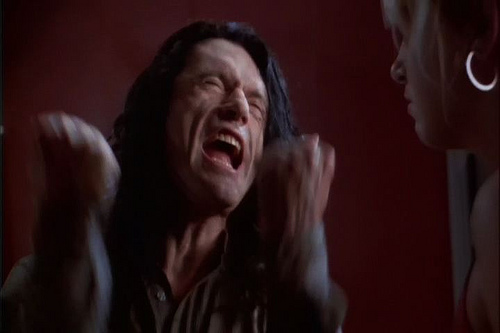 “You’re tearing me apart Lisa!!!”
“You’re tearing me apart Lisa!!!”
One of the biggest focuses of the book is the mystery behind Tommy’s fortune. For those who don’t know, Tommy financed the 6 million dollar “The Room” all by himself. Yet no one could identify where Tommy made his money. Greg makes it a point to ask Tommy, over their 10 year friendship, questions about his past, but his past is the one thing Tommy won’t give up. It’s clear that something horrible happened there and to bring it up is the equivalent of yelling “Al-Queda” on a packed flight just before it leaves the gate.
While the book is mostly laugh out loud moments (I literally laughed over 200 times) Greg realizes that if this book is going to resonate he’s going to need to explore Tommy on a deeper level. It’s actually a great reminder for screenwriters. Audiences will laugh at jokes for awhile, but sooner or later they want a reason to stick around.
Part of the appeal here is seeing how misunderstood Tommy is, how lonely he is, yet how hard-working and optimistic he stays. Greg points out that at one point, years before they made The Room, Tommy, who lived in San Francisco, would actually fly down to LA every Thursday night to take an acting class, and then fly back home the same night. Of course, because Tommy is also a living contradiction, he showed up 4 hours late filming The Room every day. Go figure.
Slipped into this is Greg’s own journey. And it’s a harsh look at Hollywood. Greg is trying to become an actor but even though his looks give him an above-average audition rate, he rarely lands any roles. Hearing him go through stretches where he doubts himself and wants to quit, is a familiar monologue any artist can relate to.
But I actually think there are some great screenwriting lessons to be learned from The Disaster Artist, starting with that one. Greg was 23 years old when he wanted to give up. Granted he didn’t go to college, so he started acting at 18, but I’m of the belief that if you want to be something, you commit yourself to it. Giving up at 23 – one year after you would’ve graduated college, is a wussy move. That’s the main way Hollywood gets rid of its wannabes. If they’re going to give up that easily, then they weren’t meant for the business anyway. Greg even notes that Jack Nicholson went through 350 auditions before he got his first part. It takes awhile to build connections and to get better at your craft. It never happens overnight. And the same can be said for screenwriting.
Also, as crazy as Tommy Wiseau is, there’s something admirable about the fact Tommy made this movie. There are too many people who only talk about doing something in this town yet never do anything about it. He went out and actually made something.
Now I know what you’re thinking. “Well yeah, he had 6 million dollars.” But when you read this book, you learn that Tommy could’ve made this movie 10 years earlier, or 20 years earlier. He had the same amount of money then. So why didn’t he just bankroll the film then? It’s because money isn’t the real reason we don’t do something. It’s fear. It’s fear of putting a piece of yourself out there. Money is great but movies can be made for very little money these days. If you really want to do it, you’ll find a way. Tommy finally forced himself to make that psychological leap, got over his fear, and did it. And there’s something to be said for that.
Hopefully, some of you guys can make that leap this year as well.
Happy New Year everyone! Or, I should say, Happy New Year in 15 hours or whatever it is. If you’re anything like me, you’ll pour yourself a drink, turn on Ryan Seacrest or Anderson Cooper, look at the big ball ready to drop in New York City, get all warm and cozy, do a double-take, and say, “What the hell am I watching this for?? This is the dumbest excuse for entertainment I’ve ever encountered.” Then turn it off and go to sleep early.
2014 has been a strange year for the screenwriting community. We’re at a crossroads, with previous paradigms dying and new ones struggling to form. The closest we have to a working model is: Shift over from writing features to writing television. The problem is, if you’re anything like me, you love movies. You want nothing more than to write them for the world. So that paradigm doesn’t work for you.
Well, I don’t think it has to be all or nothing. Chances are, you have a few feature ideas that would work well within a longer format. And since a lot of TV shows these days are basically long movies anyway, are you really missing much by writing them? Either way, you should add at least one TV pilot to your portfolio. Trust me, when you break through with your feature script and every producer you meet wants to know what pilot you have in the pipeline, you’d be wise to be prepared.
But this speaks to a larger problem. Why is the feature screenwriting world sucking so badly? I’m not as down on this year’s Black List as some. But I admit that it’s probably the worst collection of scripts yet. And there were no super-sales to speak of either. I don’t know if it’s because all the good writers are moving over to television, if the market’s new focus on super-franchises (with their big expensive veteran writers) has placed less importance on the emerging screenwriter, if specs-turned-failures like Draft Day and Transcendence have scared studios off, or if writers simply aren’t doing the work.
It very well could be that last one. Writers are putting in less work at a time when they need to put in more – when the competition is as fierce as ever. Screenwriting takes a long time to master. There are too many key elements to learn all at once. You have to write a script, fail, write another one where you learn from your mistakes, fail again, write another one where you learn from those mistakes, fail again, and keep writing until you finally figure out what works for you. It’s like any other skill. You need to practice. And I don’t know if writers are out there practicing enough.
One of the problems is the amateur screenwriter isn’t kept accountable. You don’t write as much as you should because you don’t have anyone telling you to. This is why you can get to the end of a year, like we are now, look back, and say, “Where did the time go? Why don’t I have a screenplay written?” Screenwriters work in the Las Vegas of jobs. There are no clocks. Just the sudden shocking realization that, holy shit, it’s 2015!
So the first thing I’m going to ask you to do is set some goals for yourself. You’re going to write two, or if you have a lot of free time, three, screenplays in 2015. An easy way to hold yourself accountable is to pick three screenwriting contests spaced throughout the year and enter each of them with a new screenplay. Don’t worry about winning. Don’t worry if you think contests are bullshit. Use them as motivators for finishing your screenplays. I can give you one date right now. June 1st. That’s the deadline for The Scriptshadow 250 Contest. Boom. You have your first script deadline.
Another thing I want you to do is drop the excuses. One thing I’ve come to learn about writers – and I’m just now coming to terms with my own problems in this space – is that the majority of them are afraid of action. They’re afraid to finish a work (whether it be a book, a screenplay, a project) because that then means their script will be out there for the world to judge. Which means people may not like it. Which means they’ll be miserable.
So they tell themselves that they have to study screenwriting more or do more backstory work or read more screenplays or whatever – all so that they can “truly” be ready to write that screenplay. What they don’t realize is that they’re creating barriers to finishing, to putting themselves out there, and if they keep that up, they’re never going to finish anything.
The lies we tell to protect ourselves aren’t limited to procrastination. We might blame the rest of the world for not “getting” us. Or we might blame Hollywood for their “shitty” movies as a reason why they could never understand our “good” script. And if that’s the case, why write anything at all?
We have to start being honest with ourselves. The mind is a very complicated device but the one constant it craves is the status quo. The mind doesn’t want change. Change requires new challenges and unfamiliar situations and life adjustments. And the mind’s terrified of that. Why go through all of that when it’s so much easier to sit around and rewrite your opening scene for the 80th time? If you never finish, your life never changes.
This can be applied to EVERY aspect of your life. From work to personal relationships to losing weight. Change is a hurdle we’re biologically wired to avoid. So to leap that hurdle takes a lot of effort. The good news is, if you can take that first step towards change, the rest of the change becomes easier. And lucky for you, a new year brings with it the perfect excuse to make that change. As you step into Thursday, you have the opportunity to reboot your life. Take it.
So where does that leave us on the artistic front? The town would like you to believe that the only outlet for creativity is through television. But I don’t think that’s the case. Whenever an industry becomes too reliant on one thing – as the studios have with comic book movies (and huge franchises in general) – a door opens up for a revolution in the opposite direction. Audiences WILL get bored and they WILL crave something new. Why can’t you be the person who brings it to them?
I still remember when The Matrix came out. At the time, cinema was dominated by cheesy Bruckheimer films and all those “earth gets blown up” movies. But they were clearly running out of ideas and audiences were hungry for something different. Then this Matrix movie came out and everyone was like, “Whoa. What’s this??” They’d never seen anything like it before. Ditto when the original Star Wars came out. Whenever an industry gets stagnant, that’s the time to strike.
And hey, if you want to play it safer, I can respect that. A lot of people break into this business by giving Hollywood what it wants. If that’s the case, my suggestion would be to write a feature inside your dream genre (i.e. Action-Espionage). Make it the same-but-different (a confusing way of saying give the genre a slight twist, like Matthew Vaughn is doing by turning the James Bond franchise younger and funnier with “Secret Service”) and don’t expect to sell it. Treat it as a writing sample with the hopes of getting assignment work in that genre. So if you do a great job with an Action-Espionage script, who knows? Maybe you’ll get to write Bourne 6. That’s just as awesome as selling a spec, in my opinion.
But whatever path you choose, whether it be trying to change the system or embracing it, set up some goals for yourself this year – create a system where you’re held accountable (if not screenwriting contests, then something else) and then write your butt off. DO NOT create excuses for yourself for why you can’t finish the script. You may not have heard yet, but 2015 is an official NEAY (No Excuses Allowed Year). So you’re stuck with no other option than to write your scripts and send them out.
I think you’ll do a great job. And who knows. Maybe I’ll get to read one of your screenplays myself.
GOOD LUCK AND HAPPY NEW YEAR!
I was going to do my yearly post of the best movies of the year, but you know what? I don’t wanna. “Best Of” lists are boring to me right now. And if I’m bored, then my posts are definitely going to be boring. So instead, I’m going to share some screenwriting advice with you. Now that excites me. Helping all of you become better writers. For those who just have to know, however, here are my Top 10 films without explanation.
10)Captain America: Winter Soldier
9) The Equalizer
8) Blue is the Warmest Color
7) Guardians of the Galaxy
6) In a World
5) John Wick
4) Gone Girl
3) The Skeleton Twins
2) Philomena
1) Jodorowsky’s Dune
Did not yet see: Nightcrawler, Boyhood, The Imitation Game, Foxcatcher, Lucy, Whiplash.
Now let’s talk about something that can actually help you. How bout a hefty dose of DIALOGUE ADVICE? Yeah! Nobody offered you that over the Christmas holiday, did they? You see, the other day, I was giving notes to a writer, and the dialogue in the script wasn’t up to par. Dialogue is always the hardest thing to help a writer with because it’s the subtleties that make it or break it. And most subtleties are intrinsic, making them hard to dissect and explain. This is what people mean when they say some writers have an “ear” for dialogue. What they really have is an ear for the subtleties of conversation.
So I had to take a few hours off, go through old sets of notes, pick out tips I’ve given before, look for new solutions specific to this writer’s problems, and package it all in a way that would help this writer dramatically improve his dialogue. The end result was more comprehensive than I expected, so I thought I’d share it with all of you. With that, here’s what I wrote…
The big weakness here is dialogue. There are too many on-the-nose, melodramatic and cliché lines. Here’s an example from Hunter and his son, Nicky (note to readers – part of the backstory here is that Hunter’s wife died).
Nicky: “Wish I could’a protected her that day…”
Hunter: “Me too, Nicky… me too.”
Let me ask you this. Is there any doubt that father or son wished they could’ve done more to save mom? Of course not. Therefore, to say it out loud is the definition of “on the nose.” This is followed by an extremely cliché echo-line. “Me too, Nicky… me too.” The echo-line has been used so many times throughout history that by this point, it’s only used as parody. I’ve personally seen the guys on South Park use it endlessly. Stay away from on-the-nose lines (characters saying exactly what they think/feel) and any line you’ve seen used more than a handful of times in other movies/shows.
Here’s another line (note to readers: our protagonist, Colin, accidentally killed a child while trying to save a group of people. Claire, our romantic interest, has just tried to convince Colin that it was an accident and there’s nothing else he could’ve done).
Colin: “He was just a little boy, Claire! His whole life ahead of him.”
Take note of how familiar and melodramatic this line is. It feels like something out of a soap opera. Also, once again, we know he was a little boy. We know he had his life ahead of him. Therefore, stating it out loud is on the nose and obvious. If you find your characters saying exactly what they’re thinking, exactly what they’re feeling, or anything that’s obvious, you’re probably writing bad dialogue. So how do you make this line better? In this instance, I wouldn’t have had Colin respond at all. As Claire tries to convince him it was an accident, I would’ve had him take it in. A look of frustration or disagreement, then, is all you need to convey his feelings on the matter. Often times, the absence of dialogue is the best dialogue option.
Overall, the dialogue here needs to be more unpredictable. It needs to be more natural and messy. Moving forward, I would suggest studying dialogue on a much deeper level. Start by writing down all your favorite dialogue-centric movies, then reading those scripts and noting where you liked the dialogue, then trying to figure out WHY you liked the dialogue. For example, a writer whose dialogue I’ve come to enjoy always inserts a unique phrase where a generic one would typically be. So instead of writing, “Joe went bar-hopping,” he might write, “Joe’s down at the strip of broken dreams.” Yet another writer reminded me how important specificity is when it comes to dialogue. A character shouldn’t say, “I need cereal.” He should say, “I need Tony the Tiger.” Paul Thomas Anderson, who many consider to be a dialogue master, says he rarely lets his characters finish sentences. He constantly has them interrupting before the other character finishes, as that’s more like real life.
I would go to coffee shops and eavesdrop and write down, verbatim, what people are saying to each other. Pay attention not just to what’s being said, but what’s being implied, aka, the subtext. “That’s a nice new purse,” doesn’t always mean, “That’s a nice new purse.” It might mean, “Looks like your sugar daddy’s treating you well.” Compare all this dialogue to your own dialogue. Figure out why yours doesn’t have the same naturalism.
I would spend every day writing a few practice dialogue scenes. Experiment. Take chances. Be creative. For example, write an entire scene with dialogue you’ve never heard before. Write an entire scene focused on subtext. Write an entire scene focused on suspense. Compare your scenes to scenes from professional scripts and note the differences. Pay specific attention to word choice. What words are the professionals using that you’re not?
Try to create scenarios where there’s conflict or tension between characters, as both result in more interesting conversations. Create secrets for your characters, so there’s subtext to what they’re saying. For example, in your script, Claire tells Colin right off the bat that she’s dying. Instead, what if you only give this information to the audience, and now when she meets Colin, she DOESN’T tell him she’s dying. Now the dialogue will be a lot more interesting. We’ll fear for Colin as he falls for Claire, knowing he’ll be devastated when he finds out the truth. Dialogue is one of those things, unfortunately, that doesn’t have a quick fix. It’s the culmination of a lot of small discoveries. But it’s not an area you can hope readers will overlook. Bad dialogue is one of the easiest ways to identify an amateur screenplay, so you have to put a lot of effort into getting it right.
I’m going to mix it up this year with my “Worst of the Year” list and not only include the “worst” films, but films that were the most disappointing as well. The idea here isn’t necessarily to highlight the truly worst movies of the year. Those would obviously be films like Kirk Cameron Saves Christmas and Winter’s Tale, but since there’s no reason to see those movies to know they’re bad, there’s really no reason to include them.
As for my criteria for deciding the “worst of the worst,” most of it comes down to bad writing (surprise surprise). And bad writing can be broken down into three categories: A) Writers who don’t know how to write. B) A lack of effort in writing the screenplay. And C) The people involved in the film don’t care about the script.
What really gets me is B and C. It’s not really a writer’s fault if he’s bad and someone hired him to write the movie. If he’s giving his best effort, I applaud him. But if you didn’t try hard when writing a movie? Or if the people involved don’t think a screenplay is important enough in the first place? That’s a cinematic criminal offense. So those movies always get the brunt of my frustration. Let’s take a look at the nasty cinematic offerings that 2014 gave us and celebrate their journey into cinematic obscurity.
10) Interstellar (disappointment) – I avoided all spoilers going into this movie, expecting it to be the culmination of everything Christopher Nolan had learned up to this point as a filmmaker. The scope couldn’t have been bigger. Space. The final frontier. Matthew McConaughey. Interstellar was going to be amazing. That was the plan, at least. Instead, I got muddled pseudo-science, a sloppy narrative, and an ending so ludicrous even the actors looked confused about what was happening (“I’m in a black hole talking to the past. Oh wait, now it’s 50 years later and Saturn has a space station. What????”). The Nolans needed to be put in script detention during the writing of Interstellar but no one had the balls to do it.
9) That Awkward Moment (bad) – Here’s some screenwriting advice. If your screenplay is so devoid of an idea that you have to title it, “That Awkward Moment,” you probably shouldn’t make the movie. There’s something in screenwriting known as a “concept.” It’s kind of everything that the movie hangs on. Concepts need to be big and clear. What does “That Awkward Moment” mean? Someone has an awkward moment with someone? You’re going to base an entire movie on that? When movies don’t have focus, they fall apart quickly. Watching this film was a lot like watching a bunch of people dancing without any music. It was ugly.
8) Wish I Was Here (disappointment) – I wish I wasn’t here. Maybe I drank the Garden State kool-aid too fervently when Zach Braff’s first film came out, but I liked it. The main character was on a mission. He was doing something. The film had a point! Wish I Was Here, however, was just a really sad film with people talking about how their lives didn’t turn out the way they wanted them to. The script was mired with more melodrama than 20 years of televnovellas. It was peppered with scenes that didn’t push the story forward. Story threads would show up then inexplicably disappear (the home school stuff). As if a bunch of people mumbling about how shitty their life is isn’t bad enough, we had a cancer-stricken father to deal with. Ugh. This was a brutally bad movie.
7) Annabelle (disappointment) – Isn’t the defining pre-requisite of a horror movie that it be scary? I hate to use dumbed down language here, but this was really dumb. And it was cheap! From the actors to the set design to the limited locations, everything here felt like they were cutting corners. Some scope, some original ideas, and some scares would’ve gone a long way to making Annabelle watchable, but nobody appeared to be interested in doing so.
6) The Amazing Spider-Man 2 (bad) – The Amazing Spider-Man is still trying to be 2002 Spider-Man, when all the rest of the super-hero world has moved on. Whereas franchises like The X-Men and Captain America seem to be making bold choices, pushing their genres in new exciting directions, Spider-Man’s still holding on to shoddy special effects, goofy characters, and sloppy narratives. That may have been fine when Spider-Man was the only game in town. But the audience’s tastes have matured, and Spider-Man hasn’t matured with them. I remember a scene in this movie where Spider-Man sneaks into his room with Aunt May about to catch him,Peter still in his Spider-Man outfit, and I just thought to myself – We saw this exact same scene less than a decade ago. Move on!
5) Obvious Child (disappointment) – There was something so overtly off-putting about this movie that I’m still thinking about it 4 months later. For a film that purported itself to be “important” and “thoughtful,” I was baffled that roughly half the movie had to do with shit. Really? Does every other joke in your film really need to be a shit joke? It was in such poor, but more sadly, lazy, taste, that it was hard to take anything about the film seriously. And the main character was just… I don’t know, a weird combination of annoying and sad. Watching her do her stand-up that wasn’t stand-up at all but rather her talking about how shitty her life was – I guess that was kind of the point, to show her be vulnerable and different – but boy did it make me a) depressed and b) hate her. The only thing obvious about this was its suckiness.
4) The “Blended” Trailer (bad) – That’s right. I’m putting a movie on here that I haven’t seen. Sound unfair? Sorry, but it’s an Adam Sandler movie. Seriously, go watch this trailer now to see how terribly written it is. Take note of how much exposition they need just to have the two main characters say: “WE’RE GOING TO AFRICA!” You could’ve cut 90 seconds out of your trailer and 90 minutes out of your movie had you just showed the two families on vacation running into each other in Africa. Instead you have: “My boss canceled and so he needs someone else to go and then you need to go fill in for that other person, but wait, your boss is my boss, oh wait, I’ll call him, zoinks, turns out you know him too? That way if you go and I go… On my god, WE’RE GOING TO AFRICA!” I’m hoping these leaked Sony e-mails finally wise Sandler up to the fact he’s making the worst movies in Hollywood right now. It’s the intervention he’s needed for a long time. If it’s successful, maybe we’ll never have to hear the words “WE’RE GOING TO AFRICA!” again.
3) Deliver Us From Evil (bad) – I don’t… I can’t… I’m trying… I don’t know how to describe this movie. I thought I was going to get some cool freaky religious cult horror film. Instead, I got a man hanging out at the zoo for a couple of hours. The only common thread I could find in the film was a pale-faced bald guy who sometimes hung out at the zoo. There was also something about a cave in Iraq. Oh, and this is all based on the “real life experiences” of some New York cop. I don’t know what makes me more sad – this film or Eric Bana needing to take roles like this.
2) The Rover (disappointment) – What? Was? This movie? Let me get this straight. You set your movie in an apocalyptic future. And then the story you decide to tell in that future is, a man gets his car stolen and decides to chase the people who stole it from him? That’s it???? But wait. It gets better. This world is riddled with deserted cars. So the man could’ve just found another car within a few hours. But no. He wants this car! Oh, I know what you’re thinking. The car must be special then. Like a 1959 Firebird or some other unique car, right? Nope. It was a garden variety SUV. I was so confused by the anorexia of this premise that I waited around as long as humanly possible, positive that an actual plot would surface. Nope. As a director, you get to make 1 movie every 3 years. With that choice, this director decided to do a movie about someone who chases someone else over a car. I’m speechless.
1) Transcendence (disappointment) – I’m still not entirely sure how this spec script worked so well and the movie didn’t. I know the film never felt like it got out of first gear. It kept revving its engines and revving its engines, hinting at a big next level, but it never came. There was also an inexplicable stillness to the film. Once we got to this town, our characters seemed content to just… wait around. Nobody was doing anything, particularly our heroine, whose sole purpose seemed to be to wait for Johnny Depp to talk to her. And to be honest, I don’t even know if she was our heroine. By the middle of the movie, so few people had purpose, that it wasn’t clear who our hero was. I’m not going to say that Transcendence killed the spec script, but it certainly tried its best to.
Genre: Holiday
Premise: An old miser of a man is visited by three ghosts on Christmas Eve who place him on the path to finding happiness again.
About: Charles Dickens is the original author of A Christmas Carol, which he wrote as a novel in 1843. It has since been adapted into a movie nearly 50 times, starting all the way back in 1901. Today I’ll be reviewing the 1951 version of A Christmas Carol (titled “Scrooge” in the UK) as I believe it’s the best of all the adaptations. The writer of this adaptation, Noel Langley, may sound familiar. He adapted The Wizard of Oz as well.
Writer: Noel Langley (original author of book: Charles Dickens)
Details: 86 minute running time
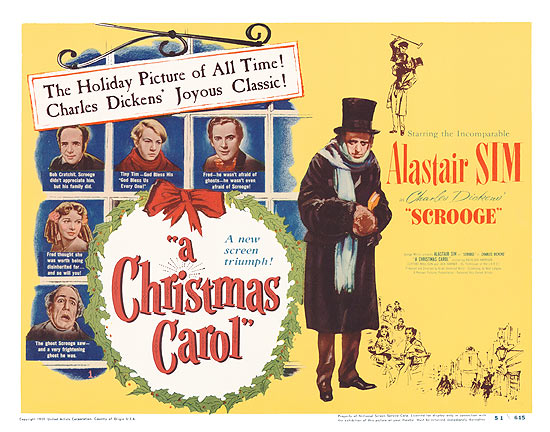
MERRRRRRY CHRISTMAS EVERYONE
It’s time to open your presents, drink your eggnog and be told by your parents that you’re not doing enough in your life. It’s the Christmas way!
I’m always fascinated by movies that stand the test of time. Of everything out there, these are the films you need to study most. With 99% of movies forgotten within a month of viewing, the stuff that lasts obviously has some secret sauce in it, something you can extract to apply to your own screenplays.
A Christmas Carol has lasted for over 150 years. That means it’s lasted through two world wars, Billy The Kid, a trip to the moon, the Civil Rights movement, the invention of the internet, and even Justin Bieber. In a society so finicky, so obsessed with the next big thing, how is it that A Christmas Carol has stuck around?
You may say, “Oh, well, it’s a Christmas movie. Since Christmas comes around every year, it has an advantage.” Not true. Christmas movies are easily some of the worst movies ever made. They’re probably the hardest “genre” to get right. If anything, that’s working against the film.
I watched “Carol” again this year and it hit me the same way it did when I first saw it as a kid. The difference was, this time, I figured out HOW it was able to do this. I figured out its “secret sauce.” While the answer to its success may not surprise you, you will be surprised at just how simple it is.
For those who don’t know the story of A Christmas Carol, it follows the most selfish, nasty, heartless man on the planet, Ebenezer Scrooge. A Christmas hater, Scrooge finds himself being visited by three ghosts on Christmas Eve, the ghosts of Christmas past, present, and future. It’s through this journey that Scrooge remembers the joys of life and how important it is to help and be good to others.
One of the most perplexing things about A Christmas Carol is that it flies in the face of everything we’re taught about a leading character. We are told that our hero must be likable, someone an audience can root for. Scrooge is probably the most unlikable person you’ll ever meet. When told that someone he knows might die, his response is, “Hurry up so we can decrease the surface population.”
I wouldn’t classify Scrooge as a hero. I wouldn’t even classify him as an anti-hero. Scrooge IS the villain of this story. And yet he’s our main character. Every screenwriting book and producer in Hollywood would tell you that that’s a surefire way to ruin a screenplay.
While many would use this as fodder for their belief that Hollywood is run by idiots, I’ve actually read far more scripts where an unlikable protag doomed a script than I have asshole heroes making a script better. So why does it work here?
My guess is that we move into the potential for change pretty quickly in A Christmas Carol. There are maybe seven scenes (some of them very short) before Scrooge is visited by his old partner, Jacob Marley, and he’s placed on the path towards change. Were we stuck with this guy for half a screenplay before he was taken on this journey, I’m sure we would’ve been less forgiving.
Another interesting aspect of A Christmas Carol is its structure – or, more specifically – how it lays out its structure for the audience. We’re told, within 15 minutes, that three ghosts are going to visit Ebenezer Scrooge, essentially giving us an outline for the film we’re about to watch.
Many writers assume that if you tell your audience what’s coming, the story will be predictable and boring. But actually, the opposite is true. By telling the audience what they can expect, you have a direct line into their expectations (since you’ve created them!), which means you can now play with them. You can zig where they expected you to zag. You can twist when they were sure you were going to turn. This approach gets great results since the reader is constantly trying to outguess the writer, and if you’re doing your job, you (the writer) are always winning.
But let’s get to the nitty-gritty. The “secret sauce” of A Christmas Carol and why it’s lasted as long as it has. Why generations of children grow up, just like their parents, falling in love with the film and its main character. Are you ready? Care to make any predictions? Okay, here it is:
A Christmas Carol is a deep-set character exploration disguised as a film.
We have ghosts here. We have time travel. We have flashy larger-than-life characters. But this isn’t about that, is it? A Christmas Carol is about one man’s transformation from a cruel selfish person to a selfless happy one. Everything that happens in the movie is built around that transformation.
I can’t stress this enough. So many movies we watch these days are obsessed with the spectacle. And then, because the writer was told to do so by a screenwriting book, they half-heartedly add a few beats to their story about their hero changing. You can smell these scripts from a thousand miles away. The writers don’t WANT to transform their hero. They don’t care about developing the character or arcing them. They do it because they’re told to.
A Christmas Carol IS its character development. It IS its hero’s transformation. Each trip on this journey is Scrooge being forced to examine himself. This is why A Christmas Carol is as timeless as it is. Because spectacle always dies. A chase scene, as awesome as it might be, is a technical achievement at best. But seeing a person come to terms with who they are, and to then transform and change into a better person – by golly that hits us where it counts. Because WE want to change. WE want to become better people.
Ironically, this goes back to my earlier observation. None of this transformation – none of the very thing that makes this movie so timeless – is possible without starting off with an unlikable protagonist. If you had tried to give Scrooge a “save the cat” moment or offset his cruelty by giving him a mother he cares for at the hospital, the transformation wouldn’t have been nearly as satisfying. This man has to start at -100 or the movie doesn’t work.
So where does this leave us with A Christmas Carol? What can we learn from it and apply to our own screenplays? Well, I always think that the unlikable protag approach is a gamble. It’s not that it can’t work, as we see here. But if you don’t get the character just right, the reader will hate them and not want to follow them. The best advice for those wanting to use an unlikable lead is “proceed with caution.”
The bigger takeaway here is to look for stories that are built around character transformations. As time has proven, these are the stories that resonate with audiences the most. And that doesn’t mean you should be writing tiny indie flicks about characters building sewage systems in third world countries. Far from it. Once again, A Christmas Carol has ghosts and time travel. It’s more about finding an idea that’s conducive to character change. Do that and you might be giving yourself the biggest Christmas gift of all – a great screenplay.
[ ] what the hell did I just read?
[ ] wasn’t for me
[ ] worth the read
[x] impressive
[ ] genius
What I learned: At least one way to make an unlikable hero bearable is to start their transformation into a better person early in the story. If we see that our asshole protagonist is on a path to becoming good early on, we’ll be more tolerant of their faults.

